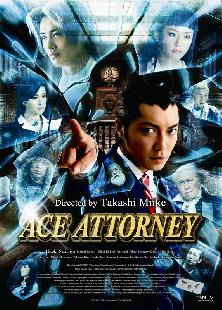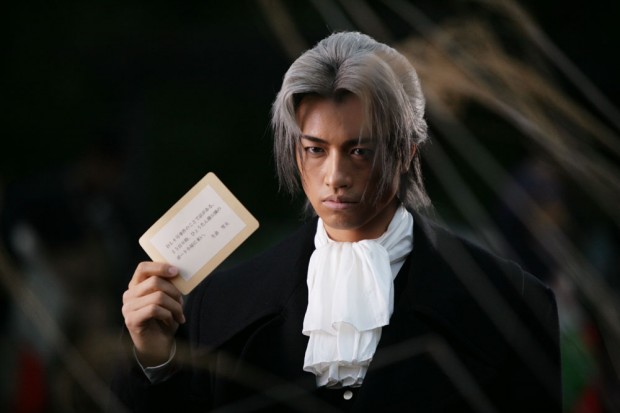Takashi Miike has been on an oddball streak of live-action films hat distinctly feel more like a series of live-action cartoons. Since last year’s whimsical Ninja Kids!!! and this year’s For Love’s Sake, a musical which played at Cannes out of competition, there has been an overwhelming sense of playfulness normally absent from his work with these manga adaptations. Perhaps this is yet another one of the director’s enigmatic cinematic phases of obsessing over specific genres (his previous streaks include yakuza, horror and samurai films). Yet it is something that very few Western directors even attempt and usually when they do, fail horribly.
Granted, Miike is no guaranteed success, but there is always something unusual to appreciate about his films, even some of the not so impressive. With his latest film Ace Attorney, an adaptation of immensely popular Capcom video game franchise for the Nintendo Gameboy and DS, the prolific Japanese director continues to propel his wacky side. Most video game adaptions suffer from a bevy of problems, including poorly adapted scripts to a failure of staying true to the source material. However Miike pulls off an impressive feat, delivering a surreal interpretation that is both loyal to the fans of the series and an entertaining piece of over-the-top comedy.
Devoting the entire film to the plot of the first game in the series, Ace Attorney focuses on the rise of Phoenix Wright (Hiroki Narimiya), a wise-cracking lawyer moving his way up the judiciary ladder. In this futuristic world, lawyers battle head-to-head with 3D holographic displays descending from the ceiling, used to hurdle evidence at one another. As this visual melee proceeds above the heads of the courtroom, it feels pretty much like how it would be inside a Nintendo handheld console. Aside from the occasional setup scene of how the crime occurred, most of the film takes inside the Looney Tunes-esque courtroom. An ensemble cast of characters give off over-the-top reactions and sport anime-style hairdos. It’s a very kinetic style of filmmaking, warranting the live-action cartoon comparison.
The one major flaw that this films suffers from, and it’s suffice to say this about a good number of his films, is that the jokes start to wear thin and the pacing sometimes drags causing the film to feel overlong. It’s as if Miike can’t stop himself from overindulging in the over-the-top antics that the source material lends itself too. Perhaps it’s a bit of hubris in showmanship, but Miike would benefit from holding back as opposed to driving in similar jokes for an extended runtime. Still, for fans of the game Ace Attorney, the director does the material justice, while simultaneously offering up evidence as to why he’s one of the most fascinating figures in contemporary Japanese cinema.
Ace Attorney screens Sunday July 15th at 1:30pm at the Japan Society.



